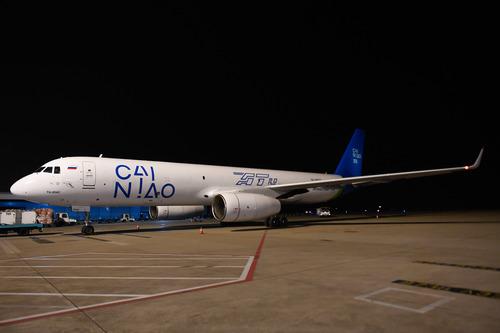BEIJING, March 24 (Xinhua) -- China will take further steps to boost the country's international air freight capacity to stabilize supply chains, the State Council's executive meeting chaired by Premier Li Keqiang decided on Tuesday.
Premier Li Keqiang stressed that development of an international logistics and delivery services system must be accelerated to uphold the smooth running of the industrial chain.
With the air passenger services dwindling worldwide due to the outbreak, the volumes of cargo carried by passenger planes have plummeted and shipping costs has risen significantly, said Li.
In the course of the outbreak response, the weak links in our air transport capacity have been exposed. "We must facilitate both international and domestic air transport services, and keep up our international air freight capacity to avert potential shocks to the supply chains and facilitate the restart of business operation," he said.
The Tuesday meeting urged effective measures to increase the country's international air freight capacity and ensure unimpeded shipments. This will both help bolster the Chinese economy and sharpen China's competitive edge in international logistics services.
The meeting called for stronger international collaboration to keep international express delivery and other air freight services running smoothly. Policy support will be provided to international cargo flights during the outbreak. Airfreight carriers will be supported in expanding their fleets by bringing in more cargo jets through lease or purchase.
The role of the market will be fully harnessed and all airfreight companies of different ownerships will receive equal support. The merger and reorganization of airfreight and logistics firms will be encouraged, and express delivery companies will be supported in expanding air services and overseas operations.
"We must plan ahead and harness the initiative of logistics firms in developing an international air transport network," Li said.
The meeting urged strengthening networks of air cargo hubs. Restrictions on peak hour slots for cargo flights will be lifted at airports with strong cargo handling capacity.
International hub airports in regions with proper conditions such as Beijing, Tianjin, Hebei, the Yangtze River Delta, Guangdong, Hong Kong, Macao, Chengdu and Chongqing will provide 24/7 customs clearance services and improve the efficiency of security checks and clearance processes.
"The manufacturing sector has been the first to resume operation, and experience has been gained in this process. The major challenge is about the clogged supply chains," said Li.
To date, micro, small and medium-sized enterprises have yet to resume full-capacity production, and this has affected the entire industrial chain. It is thus critical that all the support policies for smaller firms be promptly and fully delivered, he said.
The meeting required to harmonize the standards of air freight services, simplify the documentation requirements on freight services, and promote paperless handling procedures. Platforms for logistics information sharing will be developed to serve airliners, post services and express delivery companies, as well as freight stations.
Existing airports will be modernized and better equipped with cold-chain and parcel sorting facilities, and new airports mainly serving freight needs will be developed, said the meeting.




 A single purchase
A single purchase









